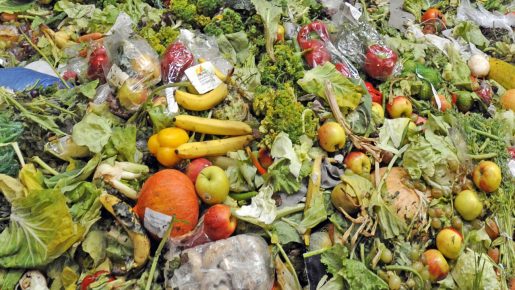Christmas waste, Mr. Michael David, the Climate and Environmental Advocate Team Lead for the Global Initiative for Food Security and Ecosystem Preservation (GIFSEP), recently issued a stark warning about the perilous connection between Christmas food waste and global warming. In a recent interview with the News Agency of Nigeria (NAN) in Abuja, David shed light on the environmental ramifications of excessive food waste during the holiday season.
For those unfamiliar with the intricacies of the issue, David elucidated on how surplus amounts of greenhouse gases, such as methane, carbon dioxide (CO2), and chlorofluorocarbons, contribute to the absorption of infrared radiation, heating up the Earth’s atmosphere and subsequently leading to global warming and climate change.
Beyond the monetary losses associated with discarded food, David emphasized the severe environmental impact of such waste, particularly during Christmas when a significant portion of the prepared food ends up uneaten. The crux of the matter lies not only in the uneaten food itself but also in the extensive energy and natural resources expended in the entire lifecycle of food – from processing and transportation to storage and cooking, Christmas waste.
David articulated the critical point that food waste, when deposited in landfills, generates a substantial amount of methane, a potent greenhouse gas even more impactful than CO2. Moreover, he underscored the extravagant use of fresh water and groundwater resources in food production, with agriculture accounting for a staggering 70% of global water usage. The excessive packaging of many food products was also brought under scrutiny, as it contributes to environmental degradation, being non-biodegradable and often ending up in landfills or as litter on streets, Christmas waste.
To address this growing concern, David offered practical tips on how individuals can contribute to minimizing food waste. His recommendations included refraining from discarding good food and instead sharing it with others, fostering a sense of responsibility and community. He urged people to contemplate the quantity of food wasted on a daily, weekly, monthly, and yearly basis, emphasizing the heightened levels of food waste during festive occasions like Christmas.
Drawing attention to the inequality embedded in food wastage, David pointed out that such practices are particularly unjust in a nation where children endure days with empty stomachs. By raising awareness and advocating for a change in mindset, he hopes to bridge the gap between the abundance of food during celebrations and the harsh reality of hunger faced by some segments of the population, especially children.
Conclusion: Christmas waste

Michael David’s comprehensive insights underscore the urgent need for a collective effort to curb food waste during festive seasons, promoting sustainability and environmental consciousness while addressing the moral imperative of sharing resources with those in need, Christmas waste.

